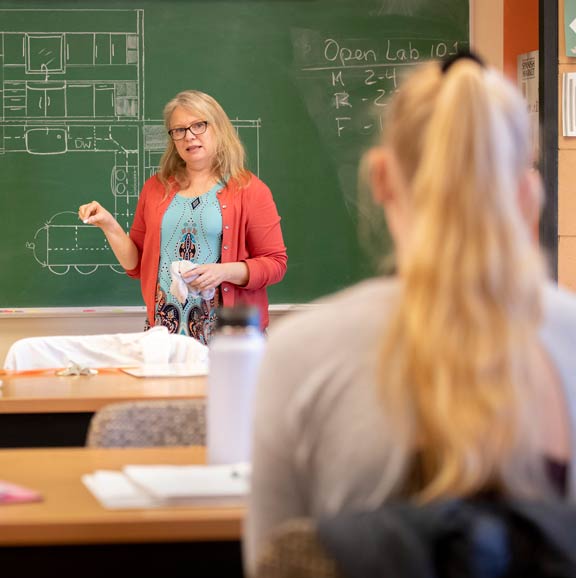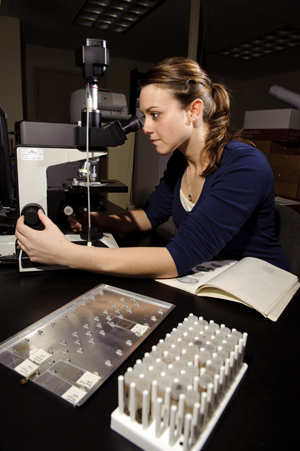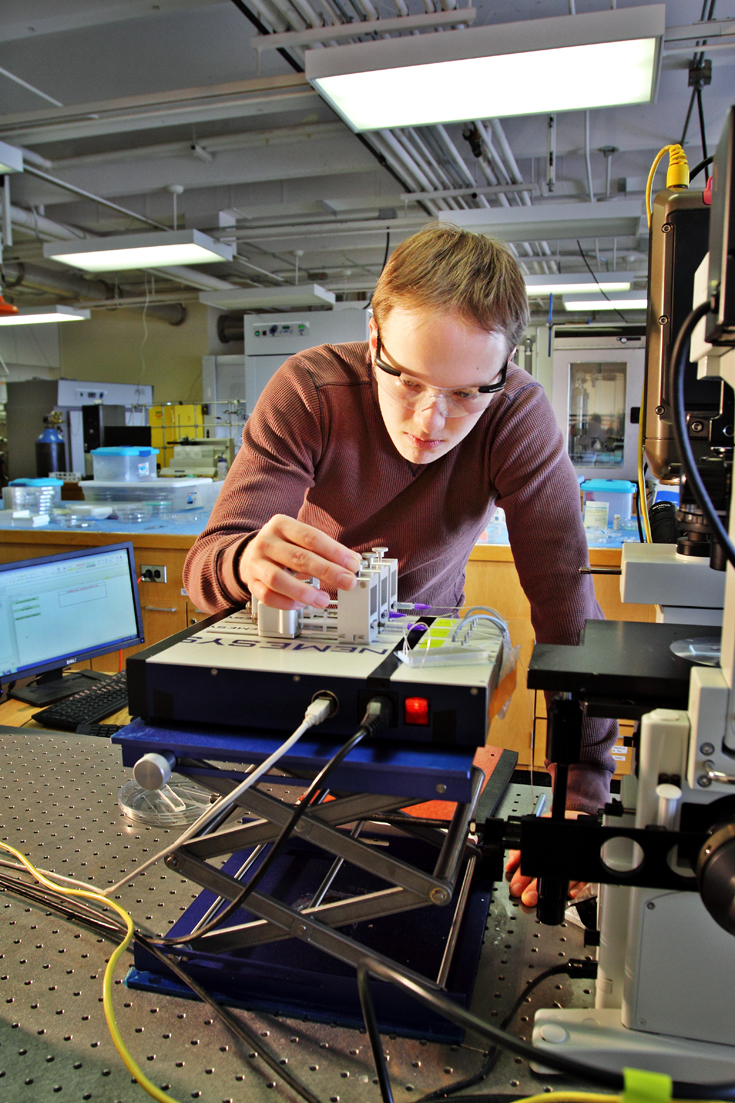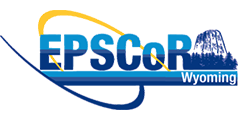Broader Impacts
BROADER IMPACTS
Broader Impacts (BI) projects include communicating intellectual merit and engaging community in our work. These programs are core to Wyoming EPSCoR's efforts to increase diversity in the sciences and expand research efforts statewide. Much of this work is done through Education, Outreach and Diversity.
Follow our Broader Impacts effort on social media, or via the Wyoming EPSCoR Blog!
Education
Data Corral – The Data Corral is an interactive web-map containing the spatial locations of collected data and has been engineered using a slightly different approach than most data archiving systems in that dynamic access (e.g. custom filters for site and date) to the available data is provided instead of simply connecting to ‘static’ datasets. This tool will be adapted and used to store all ecological and physical data (genomic and proteomic data will stored within a separate, yet connected infrastructure) collected by Micro researchers.
Curriculum development and K-12 Education - The goal of Micro's K-12 work is to improve STEM learning through direct engagement of K12 students and pre- and in-service teachers. Teachers will learn data collection and analysis tools to be integrated into classroom curriculum across the state. Teachers will then integrate these experiences into their teaching and participate in additional sessions to engage with the Data Corral, thereby enhancing their own and their students' knowledge of Data Science.
Science fair –Three mini-internship awards offered to Wyoming State Science Fair students. Awards will be granted each year to three 8th-12th grade students who demonstrated excellent science investigations in the areas of microbial ecology or biogeochemistry, innovative use of data, and innovative entrepreneurial project.
Community College ICCE Microbiomes and Extremophiles –From 2017 through 2021 ICCE will expand its breadth, and depth of impact to include faculty and students from community colleges across the state. The result will be a multi-tiered microbiome research program that includes both an in-house CWC project: ICCE Microbiomes and a statewide community college (CC) effort titled EXTREMOPHILES CC Research on the Edge.


Diversity
Summer Research Apprentice Program –One of EPSCoR's signature programs, SRAP will continue to host underrepresented students in a six-week hands-on research program. High school students will work in Micro labs. For more information about SRAP, visit their website!
Wind River Indian Reservation –Native Americans are grossly underrepresented in America’s STEM talent pool, not due to any shortage of talent, but because of structural shortages of opportunities. This shortchanges both sovereign nations and science. Microbiome Trailmaking supports education and research collaboration strategies between Wind River Reservation (WRR) schools, leaders and community members and UW and CWC to increase the diversity of people and paradigms in STEM education and in the proposed microbiome research.
Undergraduate Internships for Deaf and Hard of Hearing Students –In order to build a pipeline to increase the number of graduate students with disabilities at UW, we will partner with Gallaudet University, to provide internships a summer for deaf and hard of hearing students in the Stable Isotope lab at UW.
Partnerships and Collaboration
Entrepreneurship –Wyoming Technology Business Center will initiate an ongoing entrepreneurship initiative and seed-funding challenge directly associated with the Microbiome project. This type of initiative not only promotes the commercialization and broader impact of the research and development activities, but also stimulates entrepreneurial activity among program staff and faculty.
Industry Collaboration and Internships –WEST Inc. will to conduct a series of single-day statistical workshops to train University of Wyoming and Wyoming Community College faculty, staff, and students in specialized statistical analyses and use of analysis tools. In addition, it will host interns across southeast Wyoming offering on the job training and skills in environmental statistical analysis and data science application.
Communication and Dissemination
Communication STEM – Will increase awareness of the science research outcomes derived from Micro and to increase workforce development in STEM journalism.
Microbestiary –Consisting of microbial landscape images and descriptions accompanied by art works made in response, microbestiary broadens the impact of scientific research into the microbial life around us, by engaging non-scientists with scientific information.
Science Loves Art – SLA will expand Wyoming’s knowledge about microbial environments in their state. Our primary outreach methods will include adult and children art-‐science workshops, art-‐science speakers and art-‐science exhibitions across Wyoming, as well as SLA art-‐science kits delivered to our statewide collaborators, schools, museums, recreation centers and community organizations.

